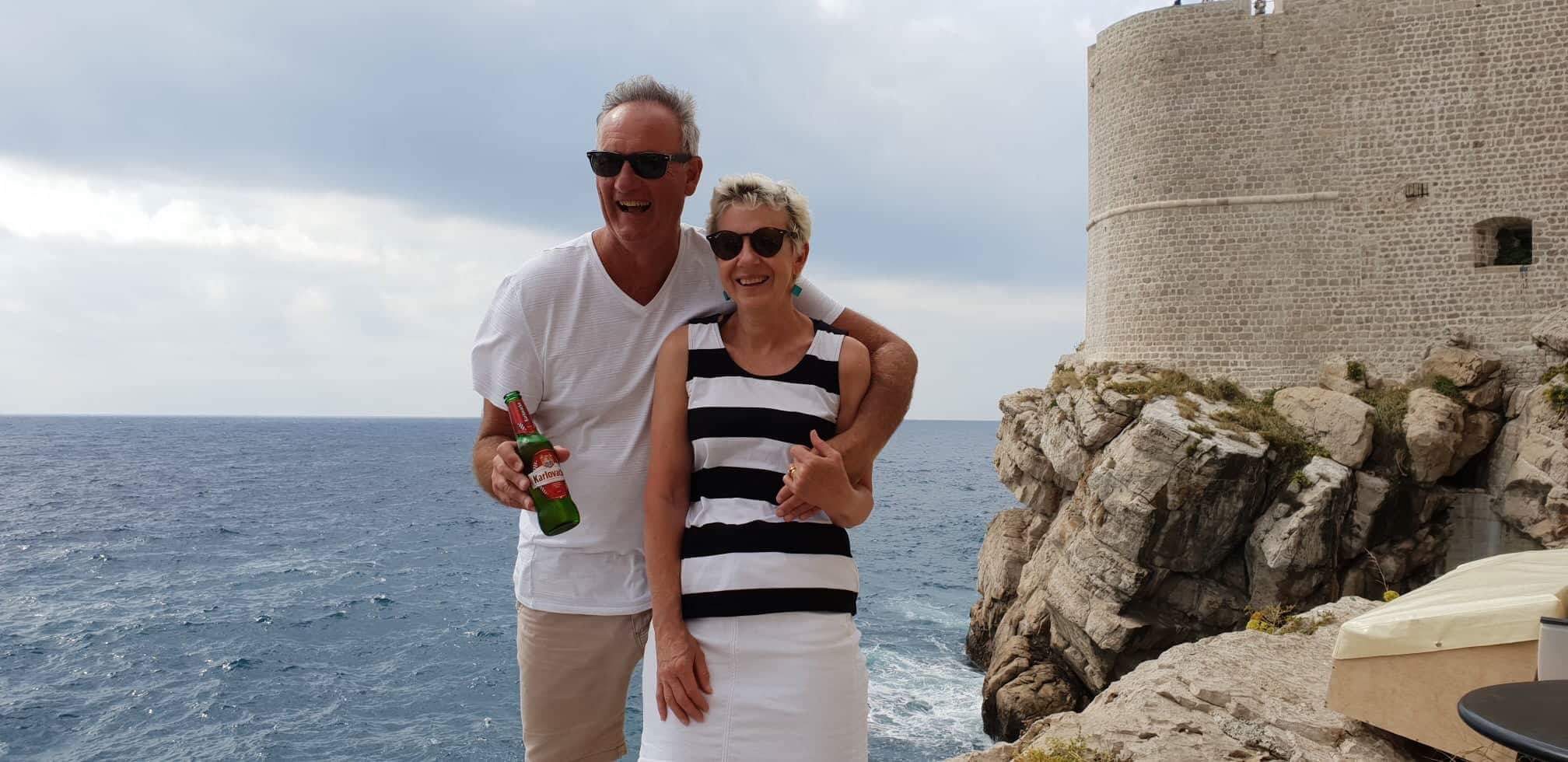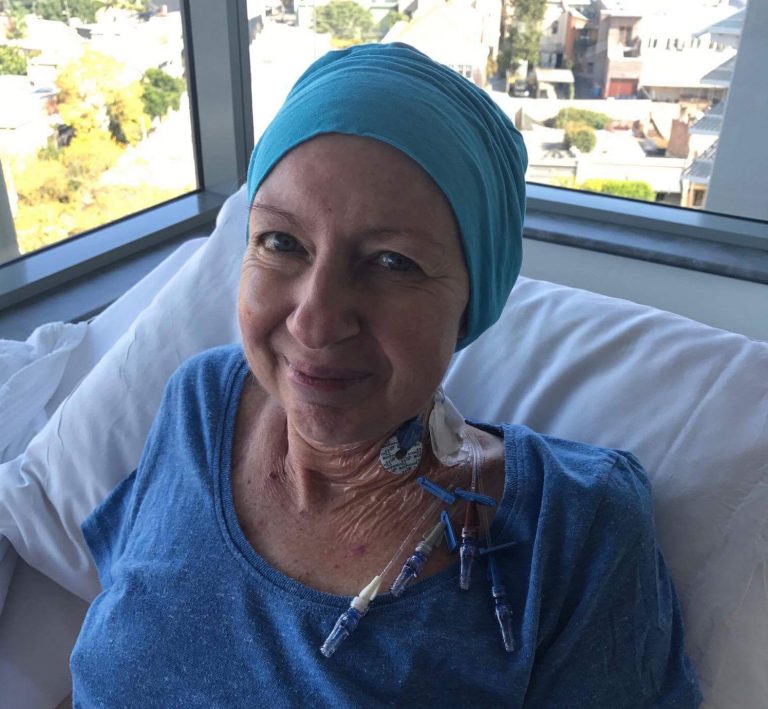Stepping up to the challenge of curing MDS
Louise Coventry felt well but tired, which she’d put down to her busy job and long hours, before her shock diagnosis with a blood cancer called MDS in April 2016.
It came out of the blue one Saturday morning when she got an urgent call from the pathologist after a routine blood test the day before. Suddenly, she was on her way to the emergency department.
She was 55 years old and until then had never spent a night in hospital, let alone two. But Louise felt confident there had been a “lab error”.
Only two weeks earlier, she’d been kayaking, and she’d been in a charity bike ride within the last month as well.
When a bone marrow biopsy was scheduled, she was more terrified of the actual procedure than finding something was wrong.
“I’m so healthy, this can’t be right’, I kept telling myself,” said Louise, of Sydney.
“I hung on to that denial for quite a while.”
Even when Louise was diagnosed with MDS, she kept waiting to find out it was all a mistake.
“My husband [Brett] and I only told my sister. We waited until we had all the accurate information before sharing [my diagnosis] with the rest of our families.
“When I finally accepted that this was not a mistake, Brett and I went into shock. He had some anger, but I was just frightened,” said Louise.
Initial treatment and the stem cell transplant
“Unfortunately, I’ve got RAEB-2 MDS which can quickly escalate to acute myeloid leukaemia (AML). My only option for a cure was a stem cell transplant.”
Her two siblings were tested as possible stem cell donors, and it was her sister, Cath, a psychologist and former nurse, who became her donor – twice!
“Even though she wasn’t a perfect match, there was no one closer on the world register,” said Louise.
“I found not knowing what was ahead very frightening.
“I was very fortunate to have the support of a psychologist [her sister] to talk things through with.”
Louise also found the Leukaemia Foundation’s information booklets “very informative” and speaking to an MDS survivor to be “so important and hugely supportive”.
In the lead-up to her transplant, to prevent the MDS escalating to AML, Louise was treated for three months with azacitidine (Vidaza®). The drug was administered by injection into her stomach, which increased her anxiety.
“Being needle-phobic, I was terrified even by that,” she said.
As it was difficult for Brett to take much time off work, her friends and family created a roster to take her to appointments, and “to hold my hand, literally”.
“I felt so unprepared [for the transplant]. I literally had no idea of what to expect. It was the first time the inner strength, of which I’ve always been quietly proud, deserted me.
But as the transplant date drew closer, Louise started taking ownership of what lay ahead.
“I knew it just had to be done, and I could do it,” said Louise, who had the transplant on 7 September 2016.
Love got Louise through
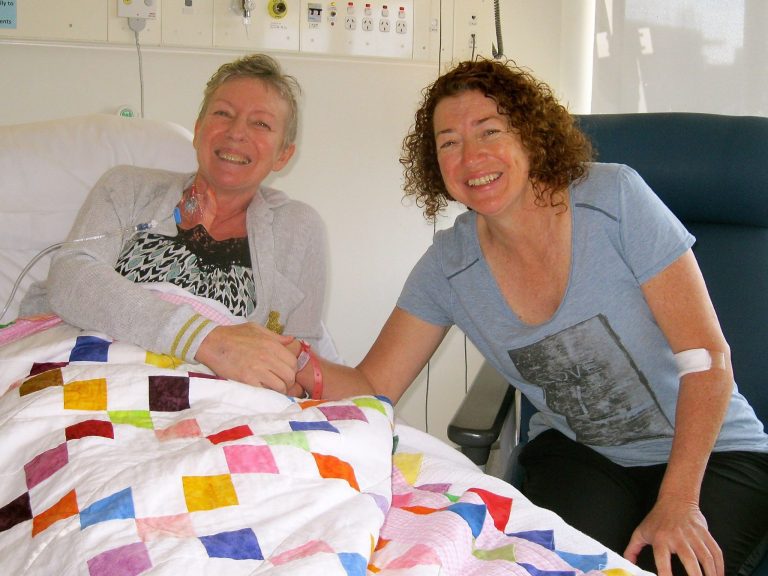
“Love is what got me through. So much love. From everyone!” said Louise.
“Brett was calm and encouraging. He framed a quote that sat in my hospital room: ‘You might not be there yet, but you are closer than you were yesterday’.”
Cath created a quote box – personal reminders and messages – for Louise to take to hospital “to remind me this was just a setback and I would get through it”.
And her friends rallied. They phoned, brought books, sent inspirational messages, took her for walks in the park, movie afternoons, drives, afternoon teas and knitting sessions.
A private Facebook group kept everyone updated on Louise’s progress, even when she devastatingly learned her transplant had failed, and she needed to have another one.
Getting on with life post-transplant
When Louise got home after her first transplant, the first few months were good.
“We started to plan our life again, caught up with friends, talked about taking an overseas trip, returning to work, and rebuilding my fitness,” said Louise, who went back to the job she loved, as a Reading Recovery tutor with the Department of Education and Training, but part-time – five days a fortnight.
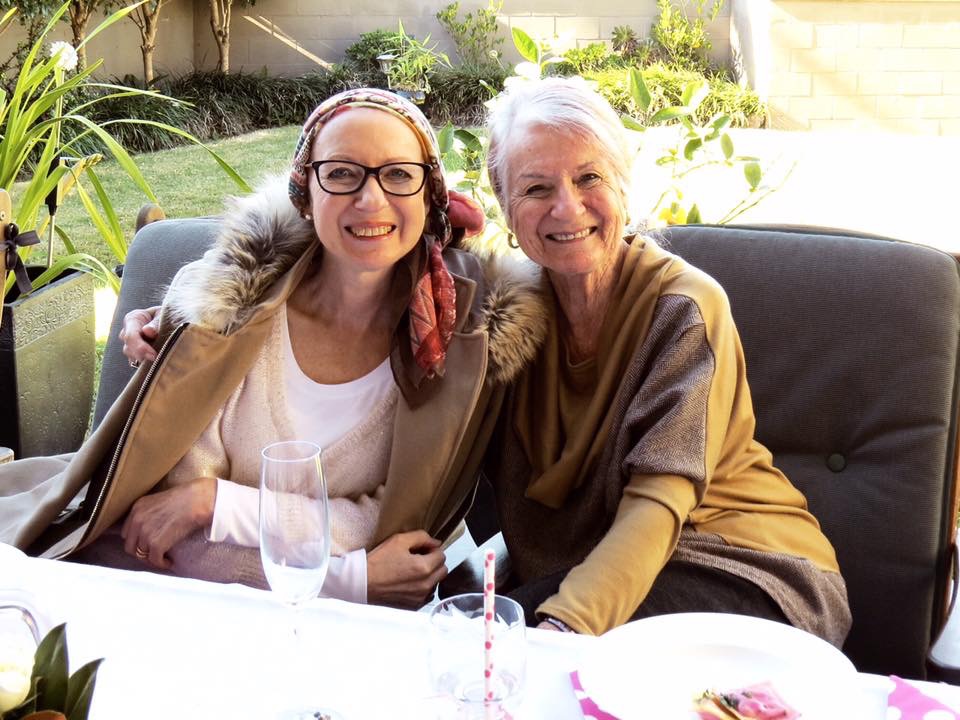
“Unfortunately, at the four-month mark, the doctors discovered my DNA was 100% mine.
“In a successful transplant the recipient (me) changes DNA and blood group to that of the donor (Cath). There was no evidence of Cath’s DNA in my bone marrow. The transplant had failed,” said Louise.
“We were devastated. I would need another transplant.
“The wheels were set in motion and although I was dreading it all over again, it was a tad easier as I knew what was ahead.”
Two stem cell transplants
Her second transplant was on 22 March 2017 – her 20th wedding anniversary – which she took as a good omen.
“It was much like the first – tough but doable – although I did have a stint in ICU with an infection,” said Louise.
She was very fragile afterwards and unable to walk more than 50 metres, so driving was out of the question. Even having the energy to make a sandwich for lunch was challenging at first.
“Mum and Dad came daily, ensuring I was eating to regain my weight and energy,” said Louise.
“The memory of my illness, transplant and recovery were forefront in my mind.
“As I regained my strength and my energy, I became much more resilient to the fear of relapse.
“Gradually my gratitude for this opportunity to recover from a serious life-threatening disease became my dominant emotion.
Transplant success
Six months after the transplant, Louise found out her DNA was 98% Cath’s and her blood group had changed to her sister’s as well – the transplant had been a success.
“I regained my sense of fun and enjoyment in the small things (sunny days, swims in the ocean, meals with family and friends, long walks) and planning for the big things (weekends away and a month-long trip to Croatia).
“Now MDS is embedded in my past. It’s time for cancer to live with me!
“I’m no longer living with cancer!
The two-year mark
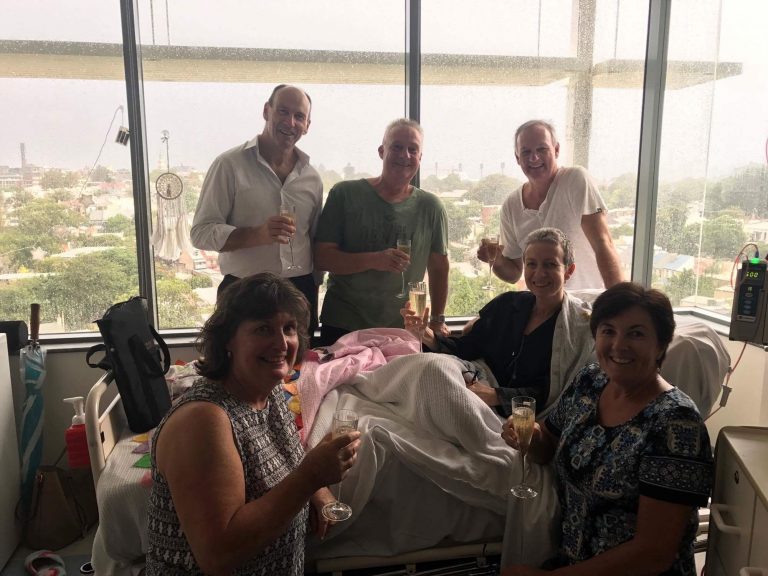
In 2019, March 22 was a special day of 2s for Louise. It marked Brett and Louise’s 22nd wedding anniversary as well as being two years since her second transplant.
“My health has continued to prosper. All my results are in the normal range and I have no ongoing issues or side-effects,” said Louise, now 58.
“My health is back, I’m emotionally stable, I’m still very happily married and supported by amazing family and friends.
It’s time to get back to living and enjoying life, and we are so grateful for the chance to enjoy life again.”
Louise and Brett both retired early, to enjoy a more relaxed life and to travel as often as they can including an overseas trip each year. They’re off to Bali in August 2019, and they’ve bought a camper trailer and next they’re taking it to the Coonawarra and across to Kangaroo Island.
“My most favourite thing, when time permits, is to read quality literature,” said Louise, who has coordinated a book club “for the books, the discussion, and most of all the catchup with friends”.
Louise is content to live a “good life”.
“I try always to be kind, and I’m really working on not judging others.
“Buddha says ‘Health is the greatest gift, contentment the greatest wealth, faithfulness the best relationship’.”
Advice to others
“Be brave, be strong.
“Lean heavily on family and friends.
“Use a psychologist and anti-depressants if warranted.
“Don’t be afraid to feel fear but own it.
“You can do this, no one but you.”
Read more details about Louise’s diagnosis and treatment in this story she wrote.
This story features as part of Blood Cancer Awareness Month 2019, helping to raise awareness of every blood cancer.
Last updated on February 23rd, 2022
Developed by the Leukaemia Foundation in consultation with people living with a blood cancer, Leukaemia Foundation support staff, haematology nursing staff and/or Australian clinical haematologists. This content is provided for information purposes only and we urge you to always seek advice from a registered health care professional for diagnosis, treatment and answers to your medical questions, including the suitability of a particular therapy, service, product or treatment in your circumstances. The Leukaemia Foundation shall not bear any liability for any person relying on the materials contained on this website.